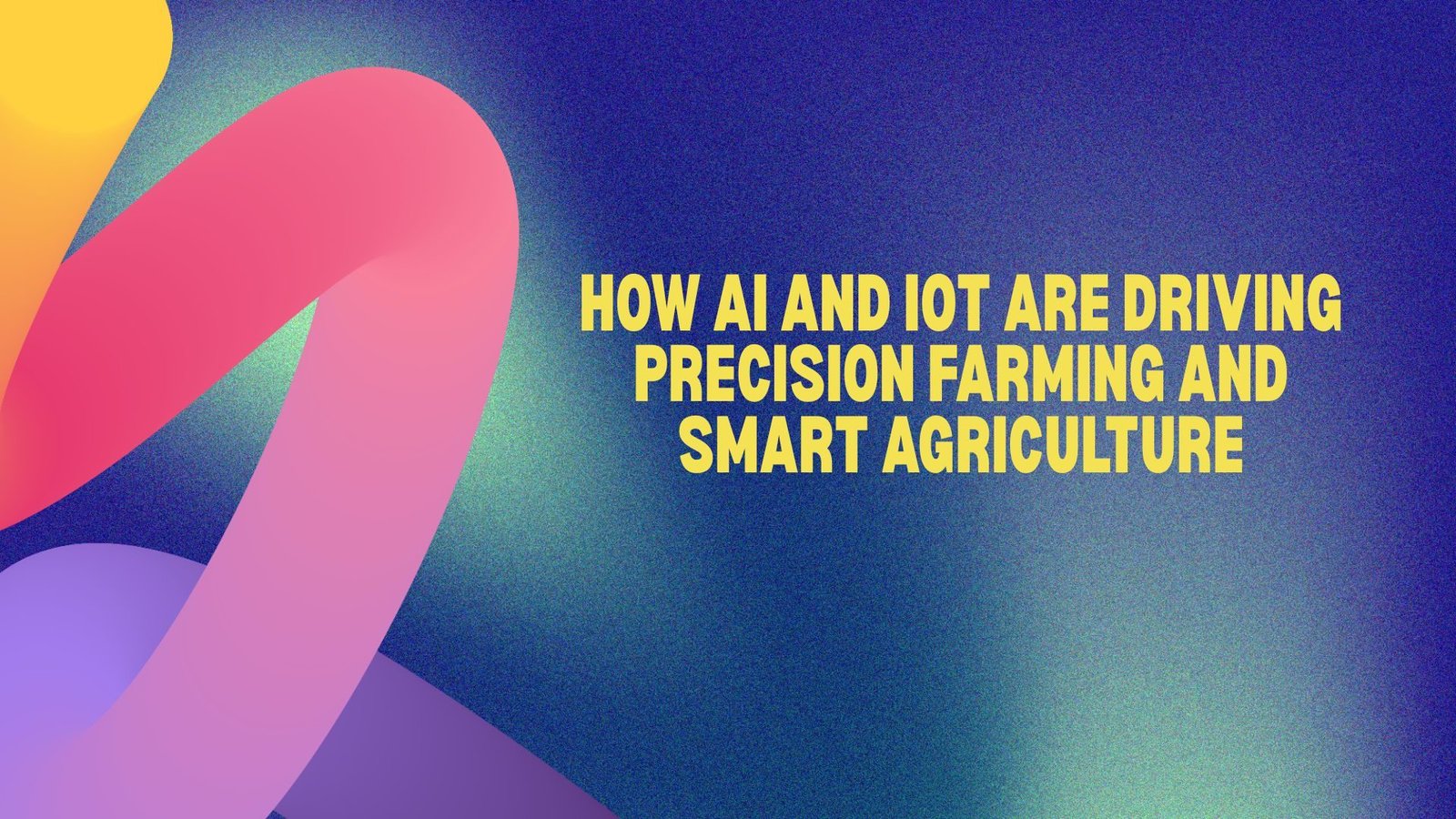In today’s rapidly evolving agricultural landscape, the integration of artificial intelligence (AI) and the Internet of Things (IoT) is revolutionizing traditional farming practices. These technologies are enabling farmers to make data-driven decisions, optimize resource utilization, and enhance crop yields.
Understanding Precision Farming
Precision farming involves the use of advanced technologies to monitor and manage variability in agricultural production. By collecting real-time data on soil conditions, weather patterns, and crop health, farmers can make informed decisions that lead to increased efficiency and productivity.
The Role of AI and IoT in Agriculture
1. Soil and Crop Monitoring
IoT sensors placed in fields collect data on soil moisture, temperature, and nutrient levels. AI algorithms analyze this data to provide recommendations on irrigation and fertilization, ensuring optimal plant growth.
2. Predictive Analytics
AI models predict potential pest infestations or disease outbreaks by analyzing historical and real-time data. This allows for timely interventions, reducing crop losses.
3. Automated Irrigation Systems
Smart irrigation systems use IoT devices to monitor soil moisture and weather forecasts, adjusting water delivery accordingly. This conserves water and ensures crops receive adequate hydration.
4. Livestock Management
Wearable IoT devices monitor the health and activity levels of livestock. AI processes this data to detect anomalies, enabling early disease detection and improving animal welfare.
5. Supply Chain Optimization
AI and IoT technologies track produce from farm to market, ensuring transparency and efficiency in the supply chain. This reduces waste and improves food safety.
Benefits of Integrating AI and IoT in Farming
-
Enhanced Productivity: Data-driven insights lead to better crop management and higher yields.
-
Resource Efficiency: Optimized use of water, fertilizers, and pesticides reduces costs and environmental impact.
-
Risk Mitigation: Predictive analytics help in anticipating and mitigating potential issues.
-
Sustainability: Efficient resource use and reduced waste contribute to sustainable farming practices.
Challenges and Considerations
While the benefits are significant, farmers may face challenges such as high initial investment costs, lack of technical expertise, and concerns over data privacy. Addressing these issues requires collaboration between technology providers, policymakers, and the agricultural community.
Conclusion
The integration of AI and IoT in agriculture is transforming the industry, offering solutions to age-old challenges and paving the way for a more sustainable and efficient future. By leveraging these technologies, farmers can make informed decisions that enhance productivity and profitability.
For those seeking to implement these advanced solutions, partnering with providers of custom software development services in South Africa can offer tailored applications that meet specific agricultural needs.
Frequently Asked Questions (FAQs)
Q1: What is precision farming?
A1: Precision farming is an agricultural approach that uses technology to monitor and manage field variability, optimizing crop production and resource use.
Q2: How do AI and IoT benefit small-scale farmers?
A2: These technologies provide actionable insights, enabling small-scale farmers to make informed decisions, reduce costs, and increase yields.
Q3: Are there affordable AI and IoT solutions for agriculture?
A3: Yes, various scalable and cost-effective solutions are available, and many providers offer customized packages to suit different budgets.
Q4: What are the data privacy concerns with using AI and IoT in farming?
A4: Data collected by IoT devices can be sensitive. It’s essential to work with reputable providers who prioritize data security and compliance with privacy regulations.
Q5: How can I get started with implementing these technologies on my farm?
A5: Begin by assessing your farm’s specific needs and consult with technology providers specializing in agricultural solutions to develop a tailored implementation plan.

